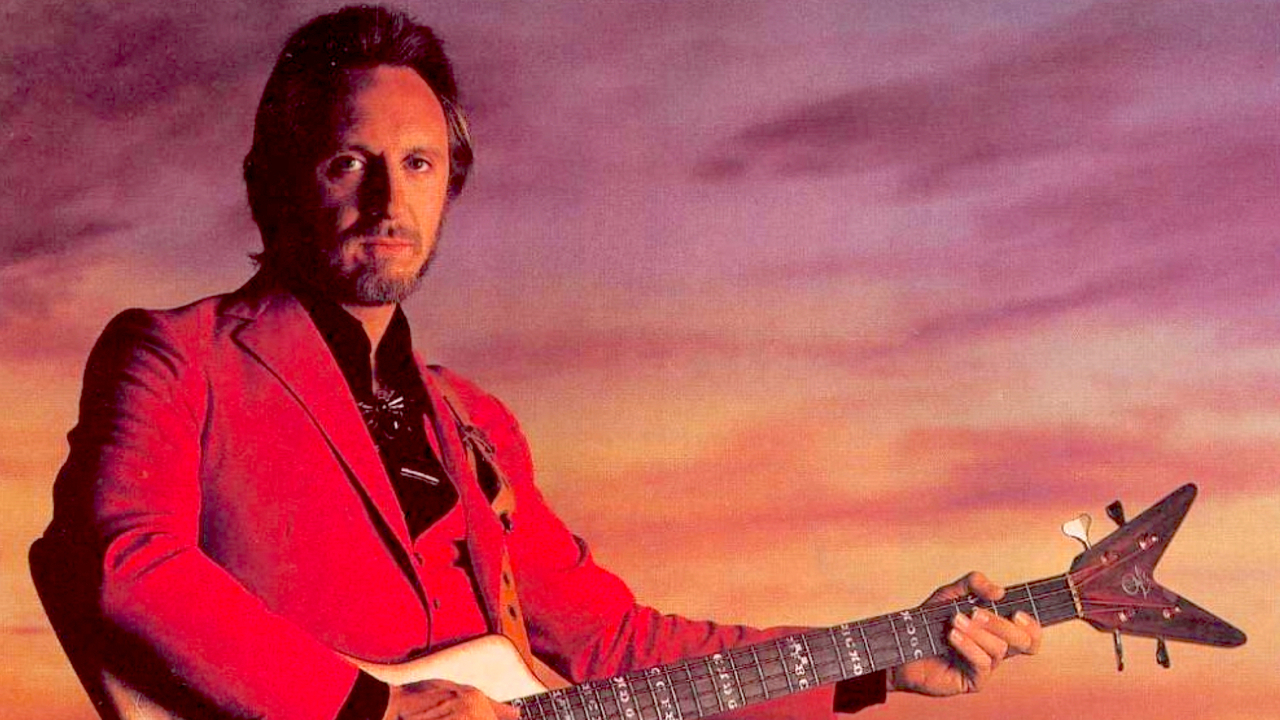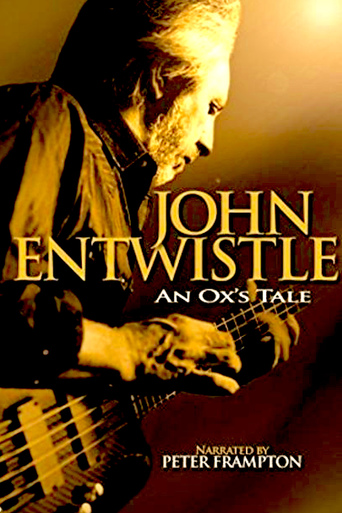swinggold
I've never been a fan of The Who. Though I do like classic rock, I was always more fan of The Rolling Stones and The Doors. However, I always recognized The Who's contribution to rock and roll. They were definitely pioneers of rock and the genre owes a debt to the "cock-rock" posturing of Roger Daltry, the frenetic drumming hysteria of Keith Moon and bombastic guitar sound and excellent songwriting skills of Pete Townsend whose poignant lyrics expressed the voice of a generation. Which brings us to the often-forgotten member of The Who, John Entwistle.The "Ox" as he was referred to sometimes, showed that the bass guitar could be more than just a supporting instrument. In his hands, the bass was as powerful a musical weapon as Townsend's guitar. Even more so in fact because Townsend was a just an average rock guitarist who covered up his shortcomings with oceans of distorted and over-driven volume. Entwistle by contrast had musical knowledge even before he picked up bass guitar. He was the only member of the group to have formal musical training before joining. He played piano, trumpet, french horn, trombone and cello among other instruments and often wrote and performed horn arrangements on some of The Who's recordings. He was very much like John Paul Jones of Led Zepplin who was also a multi-instrumentalist and arranger and also a seldom-celebrated and unappreciated band member. Entwistle's style of bass playing was revolutionary at a time when bassists were still standing at the rear of the stage by the drum podium with their heads down and playing root notes for support. He influenced many other rock bassists to come bring their sound from behind the shadows and step up to the front line and challenge the guitar and vocals."An Ox's Tale" is a nice tribute to Entwistle narrated by his good friend and rock legend Peter Frampton. Some of the footage was shot as an interview with Entwistle in his home probably a few years prior to when he passed away in 2005 in Las Vegas just as The Who were readying for a world tour. He was always considered "The Quiet One" in The Who and you can tell he was very laid back and modest and even a bit self-deprecating. There are plenty of "talking head" moments with different musicians from Robin Zander from Cheap Trick and Chris Squire of Yes to super bass guitarist Billy Sheehan and Ray Manzarek of The Doors all either recounting old stories of their friendship with Entwistle or his musical influence on their own playing. There's also interviews with his mother, son, former musicians from his solo bands, band managers and of course, there's Pete Townsend showering his departed band partner with praise and love.The only glaring omission is the absence of The Who vocalist Roger Daltry. Other than concert footage and photos, he doesn't make an appearance at all in the documentary, even to offer words of praise. There is a moment where Ox mentions a moment during a tour when Daltry was constantly complaining about his bass being too loud. This apparently caused a problem during the show as it was apparent that there may have been a bit of friction between the two but that moment was back in the 70s. Still it seems very odd that Daltry wouldn't have participated in a documentary about one of his longest working relationships, even if the two of them possibly never got along. There's also a moment when Townsend talks about how he and Roger had to decide whether to go on with the world tour that The Who were about to launch at the time of Ox's death. Though Townsend speaks with a bit of remorse and regret about deciding to go ahead with the tour, he seemed to be rationalizing why they did it when he knew they probably should have just postponed it or even discontinued performing as The Who to honor their fallen friend. Who knows what the real story is. Perhaps the filmmakers couldn't get catch up with Daltry who may have been on a solo tour or on an acting gig but I have trouble believing they wouldn't have tried or that a meeting, even by telephone, would have been that hard to make happen. Still I find it a bit disheartening that Daltry couldn't have made himself available to say a few words for a musical partner who helped make him a rock icon. It makes the film seem incomplete and makes me think poorly of Daltry.

